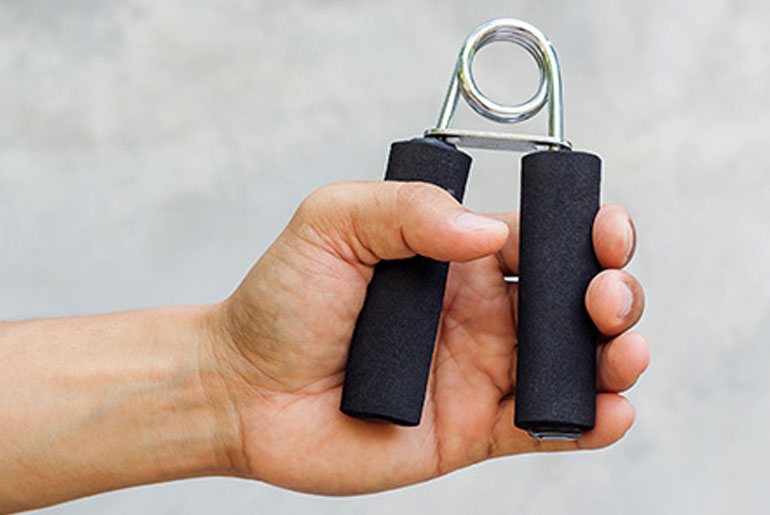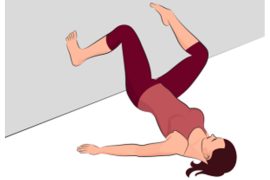A weak hand grip is not merely a sign of physical weakness or aging but can indicate various underlying health issues, as highlighted by a recent study conducted by doctors in Delhi at Apollo and Fortis. Beyond being associated with conditions like carpal tunnel syndrome, a herniated cervical disc, osteoarthritis, or diabetic neuropathy, weak hand grip can be a potential indicator of serious health troubles including type 2 diabetes, cardiovascular issues, stroke, kidney problems, and liver ailments. Sudden hand weakness, particularly, should not be taken lightly, as it may signify a potential stroke or heart trouble. Persistent hand weakness without an apparent cause could suggest broader health concerns.
Additionally, hand grip weakness may reflect changes in the body due to insulin resistance, potentially increasing the risk of developing type 2 diabetes and related metabolic disorders. Nutrient deficiencies from an imbalanced diet could also contribute to hand weakness. While occasional hand weakness may result from stress or exertion, persistent or unexplained instances could be indicative of underlying health issues.
Measuring hand grip strength using a dynamometer is a straightforward yet insightful assessment that provides valuable information about overall health. This assessment, typically measured in kilograms or pounds, involves gripping the device with maximal effort. The importance of hand grip strength goes beyond its simplicity, serving as a reliable indicator of general health, particularly cardiovascular well-being. Numerous studies have established a robust connection between weak hand grip and an increased risk of heart disease and mortality, emphasizing its significance as a potential early warning sign for systemic health issues.
Sudden hand weakness:
Sudden hand weakness should prompt immediate medical attention, as it may signify a potential stroke, which is a serious emergency. However, if hand weakness develops gradually and persists, it is generally not considered immediately life-threatening but can be indicative of an underlying treatable medical condition. Persistent hand weakness over weeks or months may be associated with an underlying issue that, if left untreated, could worsen over time. Therefore, seeking medical evaluation and intervention is crucial to identify and address the root cause of the weakness, preventing potential complications and ensuring appropriate treatment for an improved overall health outcome.
Hand weakness can result from various conditions, including:
- Carpal tunnel syndrome: This occurs due to compression of the median nerve in the wrist, leading to numbness, tingling, weakness, and pain in the hand. Repetitive hand movements, such as typing or operating machinery, can contribute to its development.
- Diabetes: Diabetes can cause peripheral neuropathy, affecting nerves in the hands and feet, leading to weakness and numbness.
- Osteoarthritis: Also known as wear-and-tear arthritis, osteoarthritis can cause joint degeneration, including in the hands, leading to weakness and limited mobility.
- Pinched nerve: Radiculopathy, or the pinching of a spinal nerve root, can occur due to spinal bone deterioration, traumatic spinal injury, or tissue displacement. When this affects the cervical spine (neck region), it can lead to hand weakness, as this part of the spinal cord controls hand movements.
- Other neurological conditions: Conditions such as multiple sclerosis or stroke can also cause hand weakness due to damage to the nerves or brain areas responsible for hand function.
- Muscle or tendon injuries: Injuries to the muscles or tendons of the hand, such as strains or tears, can result in weakness and limited mobility.
It’s important for individuals experiencing hand weakness to consult with a healthcare professional for proper diagnosis and management, as the underlying cause may vary and require different treatment approaches.
The strength of your hand grip can indeed reveal important insights about your overall health. Here are five things that a weak hand grip might indicate:
- Muscle mass and strength: Weak hand grip may be a sign of lower muscle mass and overall weakness, which can increase the risk of injuries and affect physical performance.
- Cardiovascular health: Research has shown a correlation between grip strength and cardiovascular health. A weaker grip may suggest poor circulation and potential risk factors for heart disease and stroke.
- Metabolic health: Reduced grip strength has been linked to insulin resistance and an increased likelihood of developing type 2 diabetes. It may indicate underlying metabolic issues that require attention.
- Nutritional status: Inadequate nutrient intake or malnutrition can lead to muscle weakness, including in the hands. A weak grip might signal a need to reassess dietary habits and ensure proper nutrition.
Overall functional decline: Grip strength serves as a marker for overall functional decline in older adults. It can predict mobility limitations and the risk of mortality.
Prevention and management strategies for weak hand grip include:
- Regular exercise: Engaging in strength training exercises can help improve muscle mass and grip strength.
- Healthy lifestyle: Adopting a healthy lifestyle with balanced nutrition and regular physical activity contributes to overall well-being.
- Awareness of hand use: Taking breaks and being mindful of hand use, especially during repetitive activities, can help prevent strain and pain.
For those experiencing hand pain, seeking medical advice is crucial. Treatment options may include anti-inflammatory drugs, steroid injections, surgery, or physical therapy, depending on the underlying causes of the weakness.
Disclaimer:
The information contained in this article is for educational and informational purposes only and is not intended as a health advice. We would ask you to consult a qualified professional or medical expert to gain additional knowledge before you choose to consume any product or perform any exercise.








